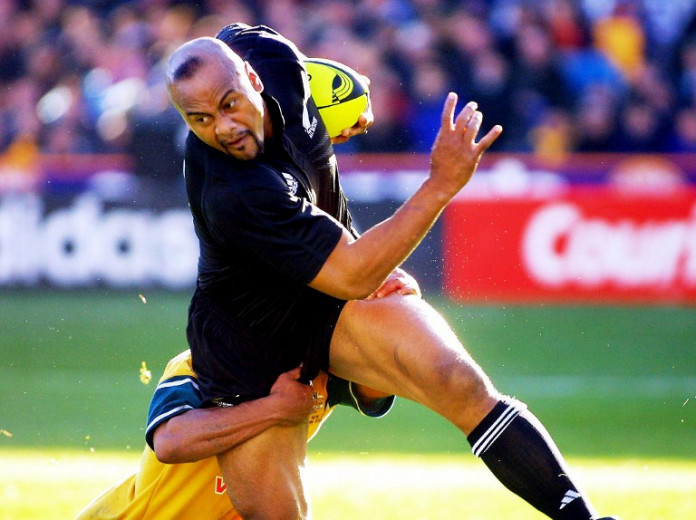Rugby legend Jonah Lomu, the game’s first global superstar whose speed and power terrorised opponents, died unexpectedly on Wednesday aged 40, the player’s family and New Zealand Rugby said.
Lomu, who for decades battled the kidney disease that ended his career, passed away suddenly at his Auckland home, family spokesman John Mayhew said.
“I can confirm that Jonah Lomu died this morning… it was totally unexpected, Jonah and his family arrived back from the UK last night,” Mayhew told TV3 before breaking down in tears.
NZR chief executive Steve Tew tweeted: “We’re all shocked and deeply saddened at the sudden death of Jonah Lomu. Jonah was a legend of our game and loved by his many fans both here and around the world.”
New Zealand Prime Minister John Key also paid tribute, saying: “The thoughts of the entire country are with his family.”
Lomu played 63 Tests on the wing for New Zealand from 1995 to 2002, scoring 37 tries.
He rose to stardom at the 1995 Rugby World Cup, where his combination of speed and power stunned opponents.
At his peak, the 1.96 metre (six foot five inch) Lomu weighed 120 kilograms (265 pounds) and could cover 100 metres in 10.8 seconds.
He was diagnosed in late 1995 with the rare kidney disorder nephrotic syndrome, which eventually cut short his international career.
He was inducted into the World Rugby Hall of Fame in 2011, when rugby’s governing body said he had left an indelible mark on the Rugby World Cup.
World Rugby chairman Bernard Lapasset said in a 2013 documentary that Lomu revolutionalised the sport at a key juncture when the game was turning professional.
“He was rugby’s first professional star at a time when the sport needed media coverage and recognition from sponsors,” he said.
“The conjunction of the way rugby was going pro and the way Jonah Lomu exploded on the scene was perfect for the game’s future.”
Lomu remained one of the world’s most recognised rugby players and had been in Britain for promotional work linked to the recently completed World Cup.
He is survived by his wife Nadene and sons Brayley and Dhyreille.

















